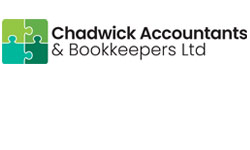The fake ‘compliance’ letter resembles the technical language and font of HMRC correspondence and could easily by mistaken for being authentic.
Sajid Ghufoor, who leads Azets’ tax investigations and dispute resolution service and whose career includes 27 years working as a senior investigator for HMRC, raised the alarm after unmasking one received by a worried client.
He said: “This is probably the best scam letter I have seen up until now. They have sought to use an HMRC team and use the right technical legislation and language – previously others have used non-UK tax legislation.
“The highly realistic letter is headlined ‘we need to verify your financial information’ and asks for business bank statements from the past 13 months, most recent full version of filed accounts, business VAT returns for the last four quarters and photos of directors, from passports or driving licences.
“If you provide the fraudsters with these details, there is a strong chance of identity theft taking place of both the company and directors in order to clear out bank accounts and open up the opportunity for VAT fraud.”
Sajid urged people in charge of finances to always check the email address on letters – genuine ones have an hmrc.gov.uk ending rather than the one in the scam which is [email protected].
He added: “Sent randomly, the scam letters are deliberately aimed at spooking smaller businesses because of the compliance nature.
“The aim of the request is to panic staff, so they unwittingly divulge sensitive financial information and, by doing so, become victims of fraud and more vulnerable to further fraud attempts.
“Mimicking government messaging, these letters from criminals have the look and tone of authenticity, with ‘Indv and Small Business Compliance’ on the top right.”
The letter ends: “If you do not reply we will conduct an investigation and possibly freeze any business activity until we conclude our investigation. This letter is not proof of your identity.”
Azets, which has offices across the UK, urged small business owners and their staff to be on the alert, saying the scam letters may arrive by email as well as by post.
Sajid added: “Based on latest government figures, there are nearly 1.2 million businesses in the UK employing one to nine staff, with nearly 223,000 employing between 10 to 49 – the fraudsters have a rich reserve to pick from, which is why businesses need to be switched on.”


![Widget-[GIF].gif](/media/14816/widget-gif.gif)























